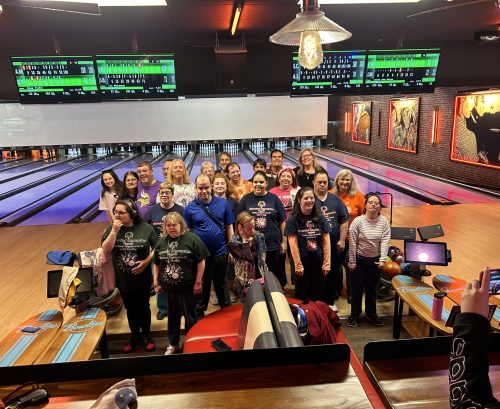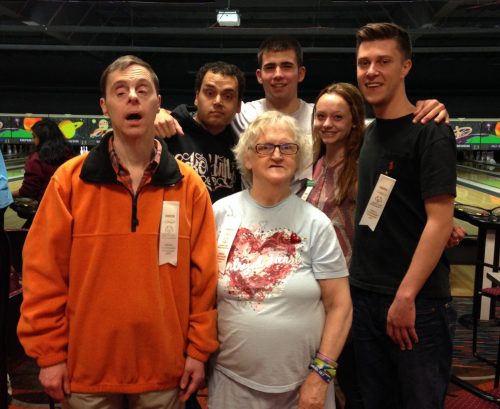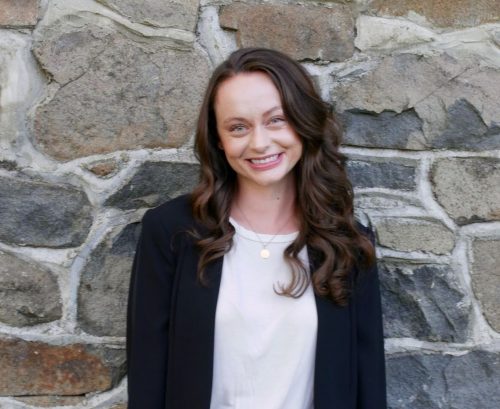Research shows that students can better succeed as adults if they learn how to make independent choices early on.
Students with intellectual and developmental disabilities (IDD) who learn to advocate for themselves in K-12 education are more likely to hold a job, live independently, and be involved in their communities.



A leading Special Education Advocate in Virginia
Kendall Heren, a member of the Gabriel Homes board of directors, has worked in special education for nearly 15 years. After working as a Fairfax County teacher and eventually chairing the special education department, Kendall founded KNH Advocacy and began her work as an advocate in Virginia. Her business helps tailor individualized education plans (IEPs) for families of students enrolled in special education. With her background working with IEPs from the educator side, Kendall mediates between parents and schools to find the best learning path for students with IDD.
Following some of her former students’ graduations this spring, Kendall spoke about their milestones, her advocacy for independence in IEPs she helps produce, and ways the community can support people with IDD. Learn more about advocating for independence inside and outside of the classroom:
Gabriel Homes’ Q&A With Kendall Heren:
“Teaching social skills could be as simple as playing board games. Taking turns in games is a huge social skill because we do the same thing in conversation. We ask questions and listen when the other person responds. For young students, I made menus of questions they could ask someone sitting across from them. Scripted conversations helped students with listening to others’ answers and making eye contact with them.”
“As a Special Education advocate in Virginia, I view the students I work with as future adults. When I develop IEPs, I review their records and testing to ensure everything is educationally appropriate. I identify goals, accommodations, and service needs based on the documentation, and then I compare them to current IEPs. If anything is missing or unclear, I bring notes to team meetings.
“Our meetings can be emotionally draining for parents and go on for hours. I try to support everyone in coming to a consensus with the IEP. Ultimately, I remind everyone that we’re here for the students so they have the best plan to become independent adults.”
“Preparing for school can be children’s first predictable routine. Show them how to make their lunches, pick daily outfits, and pack their backpacks. If you show children where everything is, they can try to do those tasks themselves. Letting children do their morning routine without your help can promote a lot of confidence in their skills. Self-assurance is a big deal at an early age!”
Follow-up: What about when they return from school?
“The first ten minutes that kids are home with their parents is critical for childhood development. I always encourage parents to ask their kids open-ended questions like ‘Who did you sit with at lunch?’ or ‘What was the highlight of your day?’ Yes-or-no questions let kids take the easy way out of conversations. Letting them expand on their answers might introduce new conversations that, again, can build their confidence.”
“I love seeing students have newfound confidence. There were students who sat under their desks and tore their worksheets. When they sat calmly and finished their projects, they were proud of themselves.
“Things that may seem small on the outside are everything to some students. In a general classroom, one of my students raised their hand for the first time in their academic career. Raising their hand showed they were worth being here, had a valid question or comment, and believed in themselves to share it. Self-pride is more important than any test score.”
“I saw my first group of students graduate from high school. They came back to their schools in caps and gowns. Middle and high schoolers learned about the graduates’ experiences, and the alumni took photos with their former teachers.
“My former students’ graduation felt like a full-circle moment because they were taller than me and became full-fledged adults! The boy who couldn’t focus became the man advising younger students on how to pay attention in class. I couldn’t describe how I felt hearing him say that guidance with conviction.”
“See people with disabilities as no different from any of us. They desire connections and believe in themselves and their abilities. As a community, we should empower them to enjoy independence like we do.”
“My sorority volunteered for Special Olympics bowling every Thursday. I went with a group of sisters for the first time as a try-it-and-see. Halfway through the evening, I looked down the alley of volunteers and athletes. I said to myself, ‘I am going to spend my entire life making these people’s lives better.’ I was taken aback by the kindness and acceptance of people I never met. Everyone was so welcoming and down-to-earth.
“The next morning, I changed from a business major to human development and later added psychology. I pursued internships in Special Education, worked at a nearby elementary school, and worked with Virginia Tech’s on-campus transition program. I never knew what my career path would be like, but I knew I wanted to be in this field. Looking back, my career has been the most fulfilling, life-changing experience I could have ever asked for.”